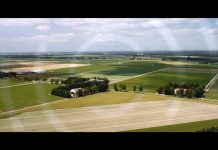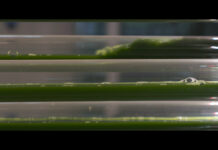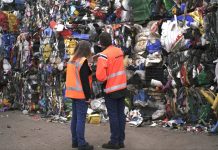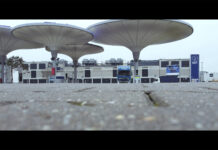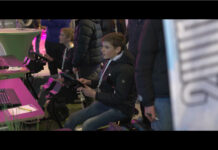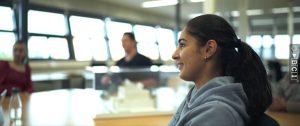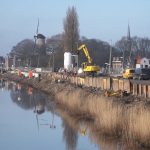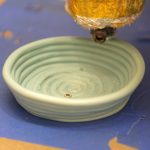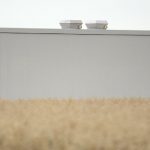Circular Economy
The Dutch government has set a goal of achieving a fully functioning circular economy by 2050, meaning that waste will no longer exist and raw materials will be continuously reused. This cannot be achieved overnight; therefore, businesses, educational institutions, and local governments are already making significant efforts.
Province of Flevoland
The province of Flevoland has developed a vision for the circular economy in 2030. They fully recognize that this vision can only be realized through collaboration with others. Therefore, they aim to support and encourage companies and educational institutions to explore opportunities in this field.
To inspire more businesses, the province has asked us to showcase circular pioneers from Flevoland. These pioneers share how they are working toward circularity, their vision for the future, and what they need in the coming years to make further progress. Each story concludes with a vision for the future as outlined by the province.
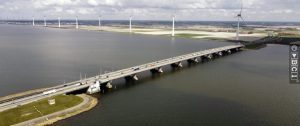
Cirwinn
First we visit Cirwinn in Almere. Cirwinn was founded with the goal of recovering circular residual materials. They process various types of waste in into usable raw materials, semi-finished 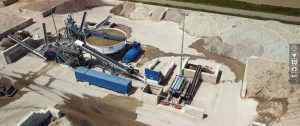 products, and end products. This documentary focuses on their approach to handling concrete from construction debris. Among other things, we see a rubble separation and washing installation they developed themselves.
products, and end products. This documentary focuses on their approach to handling concrete from construction debris. Among other things, we see a rubble separation and washing installation they developed themselves.
Startblock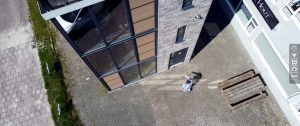
Next, we visit Startblock in Emmeloord. This start up takes a unique approach to creating circular homes that are also affordable. Unlike traditional construction, these homes are fully constructed in a factory rather than on-site. The homeowner receives a materials passport from Startblock which details exactly what materials are used, where they come from and how they can potentially be repurposed in the future.
Practoraat CRE
With the establishment of the Practoraat Circulaire Regionale Economie education in the province is working toward chain collaboration on circularity. The goal of the Practoraat CRE is to ensure that all educational institutions, from childcare to universities, address this topic. By integrating circularity into every subject, the aim is not only to connect businesses, governments, and educational institutions but also to foster true collaboration. This approach helps young people become better prepared for the challenges ahead.
Skin for Skin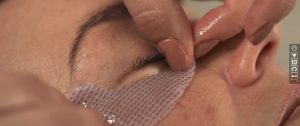
We are also hosted by Skin for Skin, a company that uniquely utilizes the valuable compounds found in fish skins. These skins are typically considered a byproduct of the fishing industry and are often processed into animal feed. However, Skin for Skin in Urk takes a different approach. They extract collagen from the skins through a specialized process and transform it into high-quality beauty products.
Oranjehoen
In Swifterbant, we visit Oranjehoen, a biological arable farm that also keeps chickens under the Oranjehoen name. By feeding the chickens the byproducts of arable farming and using their waste as fertilizer for the surrounding fields, the farm operates as a truly circular system.
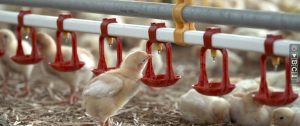 But it doesn’t stop there, efforts are being made not only to maintain circular practices on the farm but also to extend this approach through collaboration with buyers.
But it doesn’t stop there, efforts are being made not only to maintain circular practices on the farm but also to extend this approach through collaboration with buyers.
Retourmatras
Retourmatras, is the last company we visit. Although it started in Lelystad, it now operates multiple locations across the Netherlands. As the name suggests, the company specializes in recycling mattresses. However, the way they do this is truly unique.
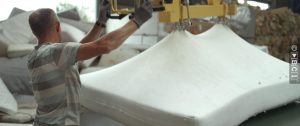 In addition, they create a new product on-site from the recovered materials, which can be repurposed in various ways. As a crowning achievement, Retourmatras is launching a factory this year that will produce polyol from old mattresses, enabling the material to be used in the production of new mattresses once again.
In addition, they create a new product on-site from the recovered materials, which can be repurposed in various ways. As a crowning achievement, Retourmatras is launching a factory this year that will produce polyol from old mattresses, enabling the material to be used in the production of new mattresses once again.
Also interesting:
Climate friendly farming with eTrac and Silphie
Loss of biodiversity in the city
Hydrogen the documentary


